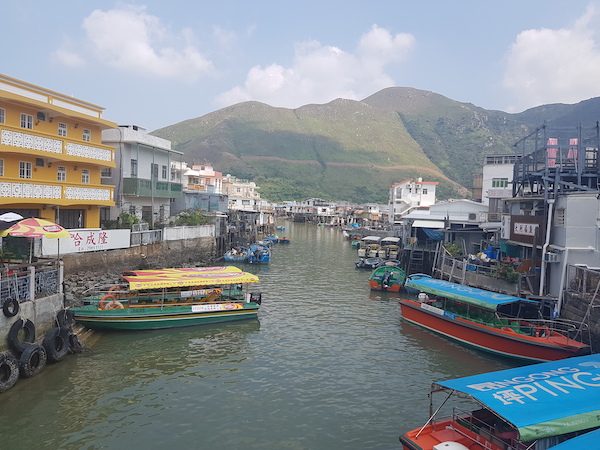
Foreign correspondent: Nathan, Kyoto
1. How long have you lived in Japan?
I’ve lived in Japan for 5 and a 1/2 years in total since 2005. I First came to Japan on the JET Program (a program from the Japanese Ministry of Education) and lived in Kochi Prefecture for 3 years. Later, from 2010-12 I worked for a Japanese Steel company. Currently I am studying for an MBA degree at Doshisha University in Kyoto.
2. Why did you go?
Curiosity got me interested in Japan. When I was 5 years old, my mother’s friend, an Irish Montessori method teacher who was working in Tokyo in the 80’s and early 90’s, visited us in Jerusalem, Israel and taught me a few basic Origami designs (Japanese paper folding). Since then I have been fascinated with Origami and dreamed of visiting Japan some day. When my father came to live in Japan in 1999, visiting Japan finally became a possibility.
3. What do you love about it?
There are many things I love about Japan. I don’t think I can list them all. To say people, culture and food would not really explain why I like this country, because there is a lot behind these broad categories. Basically, Japan is just fascinatingly different, and yet things work in their mysterious different ways here. I sometimes have a love-hate relationship with Japan, because I am also aware of this country’s problems and shortcomings. Nevertheless, at the end of the day, I always try to keep matters in perspective and finally, with no fail, I always conclude that Japan is a wonderful country, the Japanese are a wonderful people, and that this archipelago and its people have and continue to be very pleasant to me. With that said, Japan is not for everyone. I’ve grown on it, or it on me. I’ve been here for a little over 5 years and during this time I have made great friends, gotten attached to people and places, and I am still fascinated by new discoveries.
4. What are the major differences to home?
I’m not sure I can answer that, because for me personally, the concept of home is hard to define. I have lived a very international life as a child and adult in different countries and even continents. I sometimes tell people I am a turtle, because I carry my home on my back. There is not one place I call home, except for where I am at any given time. Japan has been my home for 5.5 years and I’m quite pleased with it.
5. What drives you crazy about it?
Ahhhhh … this is a dangerous question. I wish I could say nothing drives me crazy here, but that would be a blunt lie. Before I elaborate, let me clarify that I see many more positives than negatives in Japan, and that at the end of the day I am very pleased to be here. Now. What drives me crazy in Japan are rigidity, stubbornness, and poor leadership. Many organizations (public and private) need to modernize and adopt or adapt to new ways. Unfortunately, such changes are taking too long. Japan has a lot to offer the world, yet the potential to do so is hardly tapped.
6. What should every visitor to Japan do/see/try/eat?
It depends on how long you can stay, of course. I have fairly strong views on what is a top priority, but I will admit that I am biased. Here are some tips from my personal perspective:
– Kyoto is more important to see than Tokyo, but if you have time and means, try to see both.
Japan’s magic or appeal is the unique way in which the traditional blends seamlessly with the super-modern. Still, the traditional comes first; it is the essence and strength of Japan.
– Try to visit at least one relatively remote destination that is not commonly visited by foreign tourists. Prefectures in Shikoku island, Prefectures in Kyushu island, Okinawa, Gifu, Niigata, Shimane, Akita, Iwate, and more. Most tourists visit Tokyo, Kyoto, Nara, Osaka and Hiroshima, all of which are wonderful destinations, but if you have time and want to see a bit more, by all means head deeper into the countryside. Every village, town or city in Japan have something to offer, be it nature, festivals, temples, delicacies, etc …
I lived in Kochi Prefecture for the first three years and a piece of my heart will forever be left in Kochi. I am sure that other expats have similar feelings to one or more location in Japan they have lived in. Kochi is a bit difficult to navigate without a car, but I think it is worth the effort. Kochi is a banana shaped prefecture with a very long coastline. It is bordered by the Pacific Ocean to the South, and the Shikoku Mountains to the North. It is blessed with gorgeous natural scenery, spectacular seafood and produce, and the friendliest people. If you like surfing, cycling, hiking drinking, or all of the above, Kochi is a place you should consider visiting!
7. What should they avoid?
Avoid comparing Japan to your own country and finding flaws in it. Avoid hanging out with other expatriates to complain about Japan. Come with a clean slate that is ready to accept, adapt or assimilate. Of course, if you come to live here, avoid trying overly hard to become Japanese or Japanised, because at the end of the day you will never be Japanese. The important thing is to embrace and appreciate the differences, to try to learn from them, and to find where you fit in while maintaining your identity as an Aussie, Kiwi, American, Filipino, Swede, Israeli etc… in Japan.
8. What’s the biggest misconception people have about Japan/Japanese people?
Perhaps it is the idea that Japan is super-modern and technologically ahead of the rest of the world. In some ways this is true, but by no means is it comprehensively true for every aspect of life and across all generations. Indeed, Japan makes the world’s most sophisticated robots, and it is a global leader in technology and patent registration. All the while, the attachment to traditional ways is very strong, and you will be mind-boggled by the strict and detailed procedures Japanese follow for even the most mundane day to day tasks.
9. Can you see yourself living here forever?
Yes. Absolutely. Still, I don’t rule out leaving Japan, especially if an appealing opportunity presents itself elsewhere. I can’t stress enough, that Japan is not for everyone, and under certain conditions it can be an unpleasant place. In other words, I will not stay in Japan at any cost.
10. Is it easy to get a work visa and/or residency?
This is a difficult and loaded question. If you have something to offer Japan and thus you are offered a job, then it could be said to be easy to get a work visa. Furthermore, a job offer from a reputable company will make the bureaucratic wheels run faster. Of course, getting married to a Japanese national will also solve the issue, but I can’t recommend that as a strategy for securing your legal stay. Once you’ve lived here for a few years, and especially if you are married to a local, are employed, and pay your taxes, you can apply for residency and should be accepted.
A note on working in Japan as an English teacher: many foreigners find their way to Japan, at least initially, as English teachers. This is because there is demand for teachers and the pay is relatively good, especially for a fresh college/university graduate who is interested in traveling and experiencing something new. Keep in mind though, that most teaching jobs are not a career path! If you are interested in making a career in Japan as a teacher, I strongly suggest that you get an MA degree or even a PhD, as with few exceptions, this is the only way to secure a professional job with a respectable institution that values you and your qualification. Most teaching jobs are with private language schools or agencies that simply want you to look the part of a native speaker, and ultimately they treat you as a disposable commodity.
11. Is it expensive to live here?
The belief that Japan is outrageously expensive is an outdated misconception that I assume is a leftover from the booming 1980s. Japan is not cheap, but I think it is no more expensive than some parts of Western Europe, the US, Canada or Australia. In addition, the Japanese Yen has declined in recent months and this has made Japan cheaper to visit. As a tourist you will need a hotel room each night, which will start at 5000 Yen (Approximately USD 55). Meals start at 500 Yen (5.5 USD) and range upwards to infinity. Transportation is relatively expensive, but with a Japan Rail Pass, one can get almost anywhere at a real bargain price. Finally, entry fees to museums, temples, gardens and other attractions, are reasonable.
If you live here and have a job, you should earn enough to lead at least a frugal lifestyle with the occasional splurge.
12. In what ways have you adapted to Japanese culture?
It would probably be best to ask this question to friends and family who have seen me before and after living in Japan. I think I have adjusted to Japan by becoming more patient and trusting of Japanese systems, processes and ways. I try to understand a situation first, before jumping up in protest about any surprise or misunderstanding. I also try to embrace and try new things, and this has enriched me.
13. Any other advice to someone wanting to live here?
– Come with a clean slate.
– Embrace the challenges.
– Embrace the differences.
– Learn the language.
– Find a balance between adjusting and assimilating to the ways of this society on one hand, and maintaining the identity you have from wherever you are from on the other hand.
– Smile. It’s universal!





